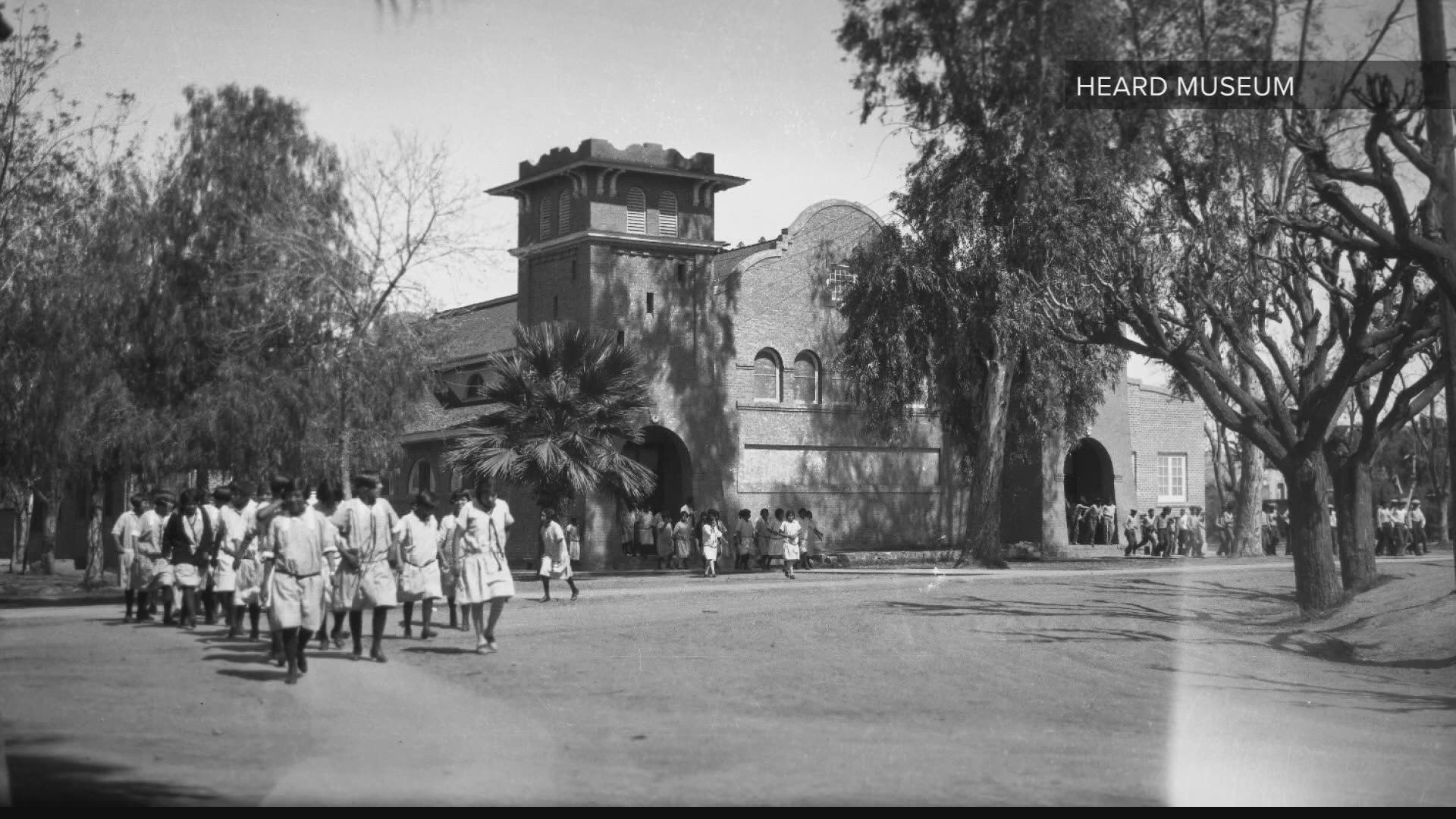WASHINGTON — The nation's first Native American Cabinet secretary on Wednesday testified in front of a Senate Committee on Indian Affairs about plans to locate bodies of Native children lost to Indian boarding schools policies that were once in place in the United States.
Her testimony comes six weeks after the first volume of the Federal Indian Boarding School Initiative Investigative Report was released, identifying 408 former institutions used to "exterminate and eradicate" Native people between the 1820s and the 1960s.
"As the head of the Department of the Interior, and as the first Native American Cabinet secretary, I am in the unique position to address the lasting impacts of these policies," Sec. Deb Haaland said during her testimony.
RELATED: 'Heartbreaking and undeniable': Former Phoenix school part of Indian boarding schools investigation
Wednesday's Oversight Hearing was a chance for the Senate committee to hear testimony from Haaland and others on the next steps of the investigation, including funding needs, mental health services addressing generational trauma and plans to revitalize Native languages.
The report marks the first time the government has acknowledged the atrocities at the federally-run schools. It's not clear when Volume II will be released.
The Department of the Interior's year-long investigation was announced in the summer of 2021 after hundreds of bodies of indigenous children, some as young as 3, were found at similar schools in Canada.
Arizona was home to 47 of these schools, the second most of any state in the U.S.
What's next?
Haaland told the committee she had not been in contact with her department's counterpart in Canada who has been coming to terms with the country's similar Indian boarding school history,
"You know, before colonization, there was no Canadian-American border," Haaland said. "There were tribes living on this continent. We are all relatives. We share a history together. We care and love one another."
Haaland said she was "deeply grateful" to Congress for their support and that funding for the initiative will help the department expand existing boarding school profiles including:
- Detailing the number of children who attended federal Indian boarding schools
- Identify marked and unmarked burial sites
- Identify interred children and detail the amount of federal support for the system
Committee Chairman U.S. Sen. Brian Schatz (D-Hawaii) called the Indian boarding school era "a dark period in our nation's history and a painful example of how past federal policies failed American Indians, Alaska natives and native Hawaiians."
"The federal government supported boarding schools with a primary goal in mind: the [forced] assimilation of Native children into western ways of life," he said, calling details in the report gut-wrenching.
As part of the Committee’s work, Schatz welcomed testimony from survivors if they want to share their stories.
These stories, as well as any written comments for the record on the hearing, can be submitted to testimony@indian.senate.gov.
Truth and Healing Commission
U.S. Sen. Elizabeth Warren (D-Mass.) was at the hearing to discuss a bill she -co-sponsored that "seeks healing for stolen Native children and their communities."
The Truth and Healing Commission on Indian Boarding School Policies in the United States Act would establish a formal commission to investigate, document, and acknowledge past injustices of the federal government's Indian Boarding School Policies.
Up to Speed
Catch up on the latest news and stories on the 12 News YouTube channel. Subscribe today.

